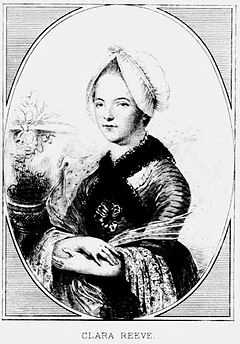RICHARD JOHNSON
Richard Johnson (1733/4-1793), wrote an adaptation for children of several stories of the Thousand and one nights under the pseudonym Reverend J. Cooper. It appeared under the title The Oriental moralist, or the beauties of the Arabian nights entertainments, accompanied with suitable reflections adapted to each story in 1790. The title page of the book indicates hat Johnson also wrote a History of England. Brian Alderson describes Johnson as ‘that universal hack’. (p. 84)
The fragments:
The collection The Oriental moralist contains a selection of tales from the Thousand and one nights (the stories of ‘Adventure between a merchant and a genie near a fountain;’ ‘The merchant in danger of being killed by the genie’; ‘The adventures of a fisherman’; and others from the first volume of Galland’s translation), adapted for a young readership. In his ‘Preface’ the author states that after reading the Thousand and one nights it struck him ‘that those tales might be compared to a once rich and luxurious garden, neglected and run to waste, where scarce any thing strikes the common observer but the weeds and briars with which it is over-run, whilst the more penetrating eye of the experienced gardener discovers still remaining, though but thinly scattered, some of the most fragrant and delightful flowers.’ Thereupon, he decided to ‘turn florist’ and has ‘expunged every thing that could give the least offence tot he most delicate reader.’ He also added many ‘moral reflections’ to ‘promote the love of virtue.’ The book is a clear example of the moralising trend in educational literature of the Enlightenment period, conforming to middle class conventions and morality. Coppinger remarks: ‘This situation and the middle class values presented and emphasized through Johhnson’s selection of the second sub-story appear in children’s literature throughout the century as a result of middle class consumerism and their presence in the book market.’ (p. 22) In this respect, she compares the stories to Edgeworth’s ‘Murad the unlucky’. The fragment gives the ‘Preface’, ‘Introduction’, and the beginning of the first tale.

Sources/references:
Kristyn Nicole Coppinger, The Arabian nights in British romantic children’s literature, Florida State University, 2006. (FSU Digital Library)
Martha Pike Conant, The Oriental tale in England in the eighteenth century, Octagon Books, New York 1966.
Brian Alderson, ‘Scheherazade in the nursery,’ in: Peter Caracciolo (ed.), The Arabian nights in English literature; studies in the reception of The thousand and one nights into British culture, Macmillan Press, Houndmills etc. 1988, pp. 81-94.
Weblinks:
http://find.galegroup.com/ecco/ (Eighteenth Century Collections Online)